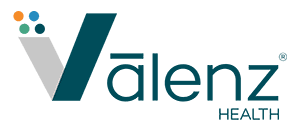The Complexity of Compliance Monitoring
Covering All Your Databases
Picture this: You were just told Dr. Jon Mathews, a newly hired physician who is treating your Miami patient population and receiving reimbursements for it, isn’t eligible to see patients at all. Because his connection to California was not known, your compliance team didn’t check the Medi-Cal Sanction list or the California Division of Consumer Affairs License Lookup – both of which would have caught that Dr. Mathews is sanctioned for practicing with a suspended license in Los Angeles County. The fact that it was only because he missed his renewal fee deadline and is currently resolving the oversight is of little consolation to you. Reimbursing a sanctioned provider is prohibited, so your organization now faces the risk of civil monetary penalties, potential legal liability, diminished reputation and more.
Avoid these nightmare scenarios by ensuring your team leaves nothing unchecked before verifying compliance. Whether you need a partner to manage exclusion, physician and provider license, and disciplinary monitoring for you – or you just need to make sure your team covers all the right bases, use the following information as a guide to comprehensive eligibility screening and compliance monitoring.
Federal Sources
- National registries
- Provider databanks
- System for Award Management (a.k.a. SAM, formerly the Excluded Parties List System or EPLS)
- Office of Inspector General List of Excluded Individuals/Entities (OIG LEIE)
- Specially Designated Nationals And Blocked Persons List (SDN List) from the Office of Foreign Assets Control (OFAC)
- CMS Preclusion List
- Other exclusion lists from DEA, FDA, FBI, IRS, EPA, DOE, DOJ and more…
The list above illustrates that there are many federal sources to check – every single month. Some lists, such as the CMS Preclusion List, are only available to your organization under certain circumstances. Whatever the case, if a list is available, your compliance team should check it. If you outsource, choose a partner whose platform can integrate and thoroughly search any list for excluded providers, and who can assure you they update those lists every day.
State & Local Sources
Your organization may be required to check all 41 state Medicaid sanction lists for sanctioned providers, but if not, you should still search in every possible state each individual has practiced or lived. Thorough sanction screening means searching lists from state licensing and medical boards, as well as state and county disciplinary action lists and abuse registries (including state/local consumer affairs, addiction recovery lists and more). Checking all lists, not just the major ones, helps ensure compliance by alerting you to not just sanctioned providers, but also providers who may have had fines imposed or faced certain allegations but have not formally been sanctioned.
Independent Sources
There are other lists that might not be as obvious, but are no less important to your compliance search. For example, checking the Social Security Administration’s Death Master File (SSDMF, a.k.a. the Social Security Death Index or SSDI), run by the National Technical Information Service (NTIS), helps rule out the possibility of hiding behind a deceased person’s social security number. Thorough SSDMF searches and SSDI searches are important. For a broader search, the National Practitioner Data Bank (NPDB) permanently stores records on medical malpractice payments and certain adverse actions related to healthcare practitioners, providers and suppliers. NPDB data can be verified using unique identifiers, such as SSN search, NPPES-NPI search (a.k.a. NPI provider registry) and date of birth search to assure accuracy.
Verifying Vendors
From hiring attorneys with DoJ sanctions to contracting landscapers with EPA sanctions – and many layers in between – be sure your team screens vendors against SAM to detect disciplinary actions imposed by any government agency (not just health agencies). But they shouldn’t stop there: It’s important to check other sources as well, such as state and federal debarred lists.
Even in cases of relatively limited exposure, the implications of non-compliance can be devastating. Managing millions of records across many disparate sources every month – reviewing potential matches and ferreting out true matches – is a very time-consuming and detail-critical task. Fortunately, you have software and outsourcing options, like Valenz solutions powered by EPStaffCheck™, to help you assure compliance with ease, for everyone’s peace of mind.
To learn the top critical success factors for effective compliance management, read Five Steps to a Successful Compliance Monitoring Program: Mitigating Risk and Liability with Assured Compliance.
The Benefits of EPStaffCheck™
Brought to you by Vālenz® Health
With daily updates to all sources, the ability to build any list into the platform, audit-ready reporting, and a dedicated content team that gathers data to support thousands of changes per week, Valenz provides the industry’s most dependable and accurate compliance monitoring solutions. To learn how you can protect your organization from the risks of non-compliance with Valenz, call (888) 395-9029.





